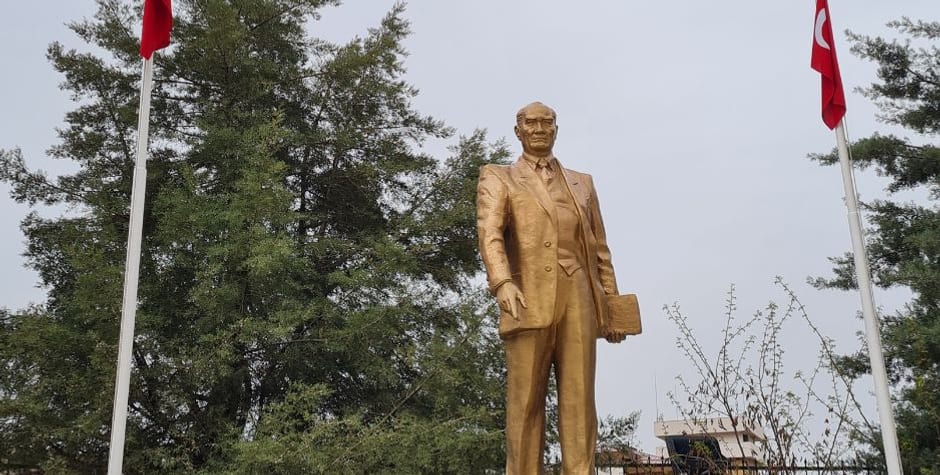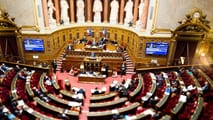

Autonomy of Greek Orthodox foundations (still) under attack in Turkey
Autonomy of Greek Orthodox foundations under attack in Turkey
In the case of Mavrakis v. Turkey (application no.12549/23), currently before the European Court of Human Rights (ECHR), the European Centre for Law and Justice (ECLJ) denounces the Turkish state's interference in the organisation of Greek Orthodox religious foundations. This case illustrates not only violations of religious freedoms in Turkey, but also a systemic government policy aimed at undermining Christian minorities. ECLJ intervened as a third party on November 4, 2024.
In Turkey, unlike their Muslim counterparts, Christian clergymen are not permitted to manage their religious foundations.
The applicants, two Greek-Orthodox priests, Niko Mavrakis and Corç Kasapoğlu, were elected as members of the boards of directors of Greek-Orthodox community foundations in Istanbul. These foundations hold significant symbolic value: two are associated with churches (the Virgin Mary and Aya Konstantin), while the third is linked to Istanbul's oldest and most prestigious Greek Orthodox school, established in its present form in 1454 (Phanar College). However, the priests were removed from the boards of directors by the General Directorate of Foundations, a Turkish public institution under the Ministry of Culture and Tourism, on the pretext that they are ecclesiastics. This decision constitutes a blatant violation of freedom of association (article 11), freedom of religion (article 9) and equality before the law (article 14 of the European Convention on Human Rights).
By barring these priests from participating in the management of their own community's religious institutions, Turkey is effectively infringing upon their right to freely organise—a restriction that is neither grounded in law nor justified. Furthermore, Turkey is restricting the autonomy of the Greek Orthodox community in the exercise of their religion and in the administration of their religious institutions, which are essential to the preservation of their faith. Finally, this decision discriminates on the basis of religion, as Muslim foundations are not subject to similar restrictions, as imams can sit on the boards of Muslim foundations. In its written observations, ECLJ highlights that these combined violations reveal a disproportionate and systemic interference by the Turkish state in the rights of Christian communities.
Christian minority foundations at risk of expropriation
By means of administrative regulations, Turkey obstructs the proper functioning and undermines the autonomy of Christian minority foundations. In particular, Turkey frequently alters the procedures for electing the managers of community foundations and even prohibits such elections, as it did starting in 1968. In 1991, elections were permitted for certain Greek Orthodox foundations under strict supervision, only to be banned again from 1992 until 2006. A new regulation on foundations and election procedures came into force in 2008 but was repealed on January 19, 2013. Community foundations were unable to hold elections, and therefore to renew their boards of directors in 2008 but new regulation, more restrictive than the previous one, came into force in June 2022. In April 2023, a new regulation came into effect, introducing amendments to the 2008 Foundations Regulation.
These frequent legislative changes, combined with close supervision, prevent Christian minorities from maintaining their institutions. ECLJ points out that this restrictive policy jeopardizes not only the rights of foundations, but also the survival of Christian communities. Indeed, by imposing administrative requirements that are unpredictable or impossible to meet, this government policy exposes foundations to the risk of being labelled “disaffected” or “inactive”, and thus falling under the tutelage of the General Directorate of Foundations (article 7 of law no. 5737 on foundations). In this way, the Turkish state has succeeded in appropriating the assets and revenues of numerous Christian and Jewish foundations (articles 26 and 77).
Turkish Christians the victims of Turkish and Muslim ethnic-religious nationalism
The Mavrakis case illustrates the Turkish authorities' determination to weaken Christian minorities by controlling the institutions that enable them to preserve their religious and cultural identity. It is just one example of the latent persecution suffered by Christians in Turkey, victims of an ethnic-religious nationalism promoting the homogeneity of a Turkish-Muslim nation. The ECLJ highlighted this persecution in its contribution to the October 2024 Universal Periodic Review of Turkey at the United Nations Human Rights Council. The ECLJ has also filed written observations in several cases concerning violations of Christian rights by Turkey, such as Fener Rum Patrikliği v. Turkey (no.14340/05), Arnavutköy Rum Ortodoks Taksiarhi Kilisesi Vakfi v. Turkey (no.27269/09), Arhondoni v. Turkey (no.15399/21) or, concerning a deported foreign Christian, Wiest v. Turkey (no.14436/21).
Although Christians have been present in Anatolia for thousands of years and are supposed to be protected by the Lausanne Treaty of 1923, they now represent only 0.2% of the population in Turkey. This marginalisation is the result of systematic discrimination and direct or indirect violence. The Greek Orthodox community, in particular, has seen its numbers plummet from 100,000 in 1923 to less than 2,000 today. The Greek Orthodox Church is subject to severe administrative restrictions, including non-recognition of its ecumenical character and lack of legal personality. The closure of the Halki seminary in 1971 continues to prevent the training of new priests in Turkey.
In its written observations, the ECLJ recalls that the autonomy of religious communities is essential to pluralism and democracy. The ECHR should therefore firmly condemn the discriminatory practice of preventing Greek Orthodox priests from sitting on the boards of Greek Orthodox foundations for which they are responsible under Church law. The Court should also recognise the systemic nature of violations of Christians' freedom of religion in Turkey. By establishing a legal precedent that would protect Greek Orthodox Christians, the Court would also protect all religious minorities in Turkey, in the face of President Erdogan's policy of national and religious












